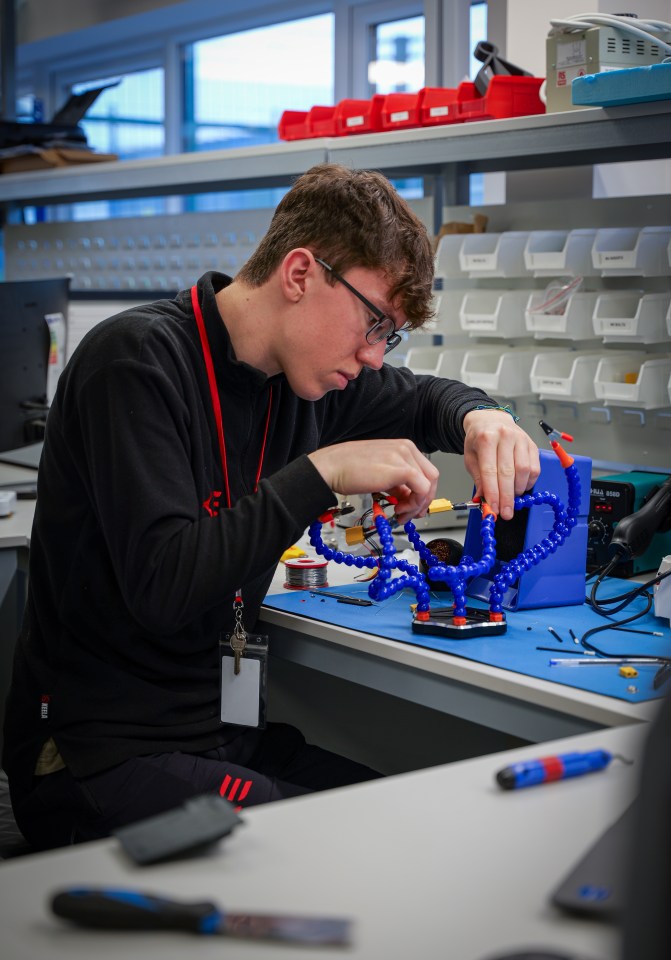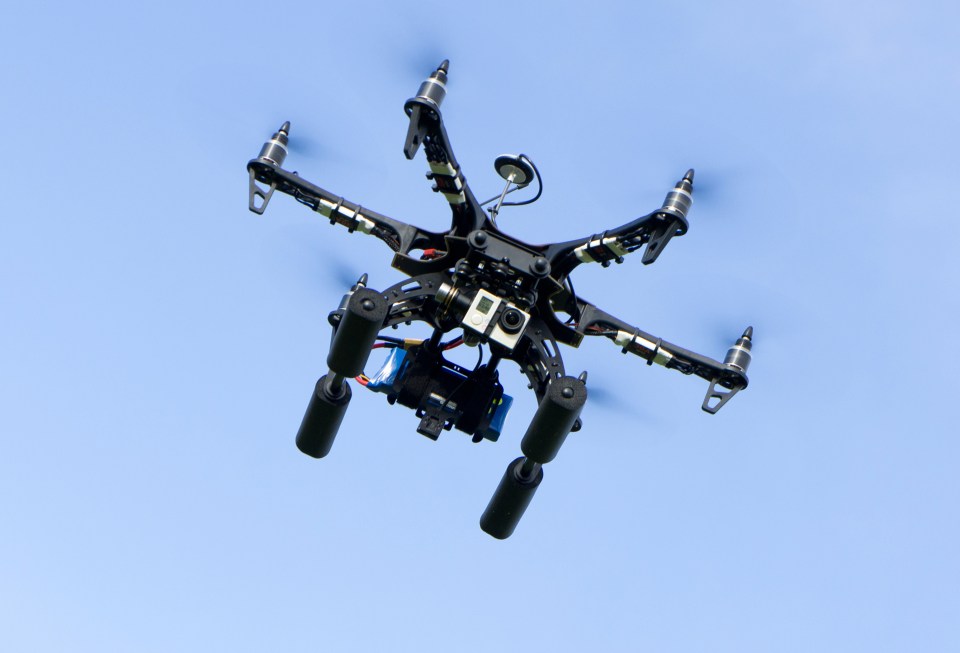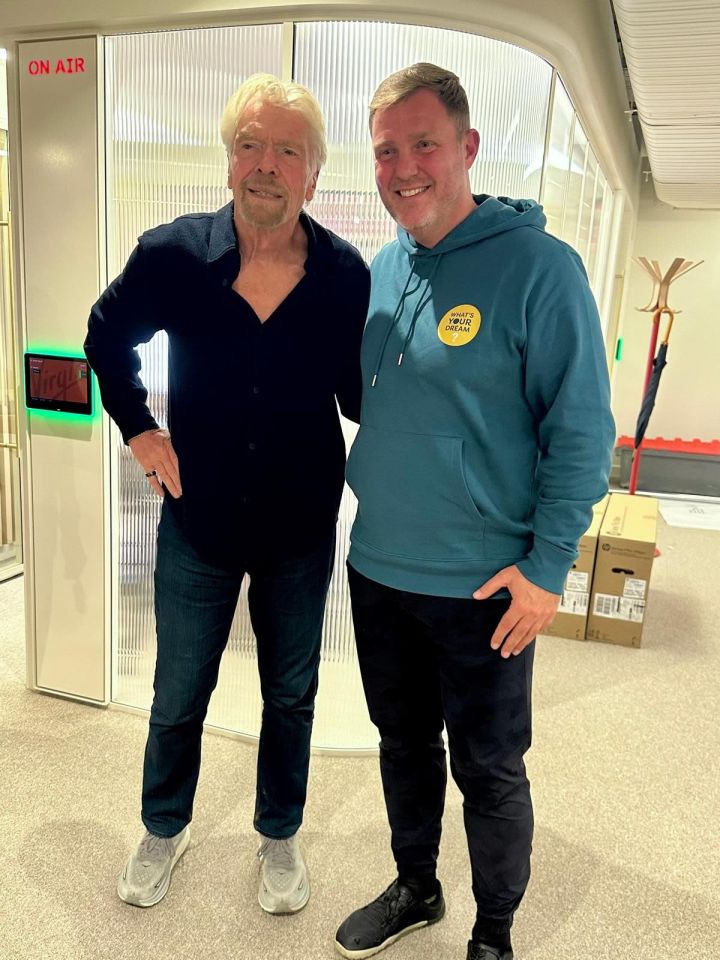FROM fighting in war zones to surveying the carnage of the LA fires, drones have been hitting the headlines.
But did you know that the UK is emerging as a world leader in the aerial tech?
The UK drone market generated around £94.66million in 2023 but is predicted to reach as much as £1.5billion by 2031.
Drones are currently being used for an array of tasks including surveying buildings, decommissioning nuclear installations, inspecting dangerous structures and providing emergency searches.
The Royal Mail is even trialling drone delivery in remote areas.
While 84 per cent of budding drone businesses have fewer than 50 employees, analysts Drone Industry Insights said: “The drone market in the UK is among the top in the world, with significant potential for growth.
“The economy in the UK as a whole offers a unique opportunity for the drone industry to thrive, and it has witnessed significant advancements in the use of drones in recent years, particularly in healthcare and delivery.”
Currently the majority of UK firms are drone service providers — offering specialised services such as aerial photography, mapping, surveying and inspections.
However, a growing number of hardware and software manufacturers are setting up, providing a rapidly increasing number of jobs.
Welsh-based firm Tekever recently unveiled the first drone produced entirely in the UK and has doubled its workforce over the last year.
Its customers include the Home Office, Ministry of Defence and RAF, with its AI-powered drones used to detect threats to human life and the environment, such as illegal fishing, oil spills, vessels in distress and wildfires.
The drones are also deployed in Ukraine for intelligence, surveillance and reconnaissance.
As well as roles as drone pilots, the sector offers vacancies across operations, engineering, software development, manufacturing and support.
Tekever CEO Ricardo Mendes said: “We’re experiencing rapid growth and developing pioneering technology that tackles some of the most intricate geopolitical, economic and environmental challenges faced by governments, militaries and private organisations. Yet, our success hinges on the exceptional individuals behind the technology
“Our employees tend to stay with us long-term, not just because our work is impactful, but also because we are dedicated to supporting their professional development.”
Graham Brown, chair of drone industry body ARPAS-UK, added: “Drones are faster, cheaper, safer and greener than other solutions for the same job.
“We want businesses, as well as the general public, to understand the immense benefit of drones and understand that there will be positive adoption over the coming years.”
- Find drone jobs at arpas.uk/tag/drone-jobs; tekever.com/careers; dronedesk.io/drone-industry-jobs.
Flying start
RESEARCH and development apprentice Morgan Brandy-Phillips joined Tekever in 2023, shortly after getting his A-level results.
Morgan, 19, from Aberaeron, Ceredigion, plans to study for a degree alongside working, and says: “The drone industry is growing rapidly, it’s an exciting time to be starting a career.
“There are a lot of great technical roles, but also opportunities across operations, business development and support. There’s something for everyone.
“R&D requires a lot of problem-solving, which I enjoy. You try one thing, tweak it and then test it again.
“Curiosity and a willingness to learn are key.
“There are no mandatory qualifications. Tekever is open to anyone eager to grow and adapt in a changing environment.”
Be ready for Blue Monday
NEXT week sees Blue Monday, dubbed the most depressing day of the year.
But there is no need to feel down at work.
Lord Mark Price, founder of workplace happiness consultancy WorkL and author of Happy Economics: Why The Happiest Workplaces Are The Most Successful, says: “Companies that prioritise employee wellbeing and engagement not only see a stronger bottom line but also build a workforce that’s motivated, loyal and better equipped to face future challenges.”
Here, he shares his top tips to create workplace cheer . . .
1. JOB SATISFACTION: Two things drive job satisfaction beyond enjoying what you do – your relationship with your line manager and whether your career is being developed in a positive way. Work on both to feel better.
2. SENSE OF PRIDE: People need to understand how their role is important to achieving the organisation’s objective. Employees who are proud of their workplace are also the best publicity for their organisation.
3. REWARD AND RECOGNITION: Pay has to meet expectations but genuine recognition given regularly for a job well done can mean more and is also a more consistent driver of performance.
4. EMPOWERMENT: Managers need to stop meddling. Trust your teams to find the best solutions without constant input from line managers or senior staff. Bosses should focus on coaching teams to best use their individual expertise and skills, but be there for support if needed.
5. WELLBEING: Emotional, physical and financial wellbeing are all vital. There are any number of initiatives that companies can put in place but underlying everything has to be a belief from employees that you genuinely care about them.
7. INFORMATION SHARING: Concealing information makes employees feel sidelined and suspicious. Employees need a genuine overview of what is going on in their area and elsewhere.
8. FLEXIBILITY: Not everyone can work from home but for those who can, a reduction in travel time in order to support a better work/life balance and to save money is a big driver of workplace happiness. Notably, women are almost twice as likely than men to say flexibility is essential to their job satisfaction.
Jobspot
WANT a job in construction?
Check out 170 employers through Open Doors from March 17 to 22, allowing you to tour live work sites and chat to workers.
Book a place at opendoors.construction
How home helps
WORKING from home is helping to build stronger communities, a new study reports.
The impact is strongest in urban areas where 44 per cent of residents say neighbourly relations are better.
Overall, Cardiff is the UK’s most neighbourly city, followed by Edinburgh and Nottingham.
Sarah Khan, Head of Churchill Home Insurance which commissioned the study, said: “Two fifths of workers partially or fully work from home, so it is great to see it has helped foster relationships with neighbours and an added sense of security.
“Those relationships can play a vital role in building safe and supportive communities.
“From keeping an eye on your home, and taking in your parcels, to offering a helping hand in an emergency, it’s great to have someone nearby or, when needed, that you can call upon quickly.”
Jobspot
ELECTRICAL distribution firm UK Power Networks is recruiting for engineers, apprentices and foremen.
For more details, see careers. ukpowernetworks.co.uk
It’s start-up day
TODAY is Founder Friday, the most popular day of the year for people to set up their own firms.
To help aspiring business owners, Sir Richard Branson and social media start-up star Simon Squibb are launching the Elevator Of Dreams at Virgin Hotels London in Shoreditch.
The wacky idea sees entrepreneurs present their ideas via a video doorbell, with the recording then uploaded to the HelpBnk platform for an audience of global investors to view.
Research shows one in nine workers would like to set up their own company, rising to a quarter for 18 to 24-year-olds.
Sir Richard said: “More people than ever are considering starting their own business. There’s never been a better time to give it a try. I can’t wait to see what founders come and pitch to us in the coming weeks.”
For more information visit elevatorofdreams.com.



